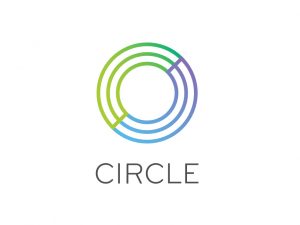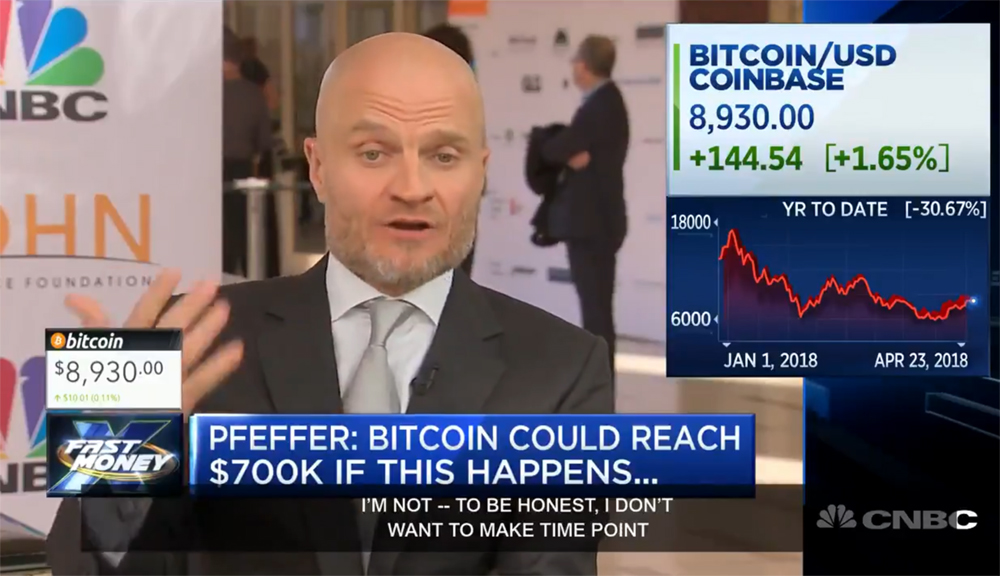Latest news about Bitcoin and all cryptocurrencies. Your daily crypto news habit.

In today’s Bitcoin in Brief we’re talking about big money and big expectations. While the ratio between bulls and bears is constantly changing in the crypto market arena, experts working with venture capital investments and large crypto trades report positive trends and share optimistic sentiments. On that backdrop, “Why is our digital society still using a yellow metal to store value?” is a good question.
Bitcoin to Reach $90k in Two Years, Potentially $700k
 The future of Bitcoin was one of the hot topics at this year’s Sohn Investment Conference. The leading cryptocurrency is the first viable candidate to replace gold according to John Pfeffer, hedge fund manager at Pfeffer Capital. Bitcoin could rise to no less than $90,000 in the next couple of years, and potentially as high as $700,000, Pfeffer predicted during the annual event.
The future of Bitcoin was one of the hot topics at this year’s Sohn Investment Conference. The leading cryptocurrency is the first viable candidate to replace gold according to John Pfeffer, hedge fund manager at Pfeffer Capital. Bitcoin could rise to no less than $90,000 in the next couple of years, and potentially as high as $700,000, Pfeffer predicted during the annual event.
“We should think of crypto assets as a venture capital investment. They can go to 0, but there is a chance that they could be worth much more. In the case of bitcoin, it would be worth $90,000 if it became equal to private gold bullion holdings, about $1.6 trillion of total value compared to $150 billion or thereabouts today. It’s a bet, it’s a risk that I’ll be willing to take”, the investor told CNBC.
Using a Yellow Metal in a Spacefaring Society
“On the higher end – you could get to higher values, if bitcoin becomes a major reserve currency, i.e. if countries begin to take bitcoin in their reserves. In that case, it can reach several hundred thousand dollars,” John Pfeffer added. In order for that to happen, bitcoin will have to replace about 25% of foreign reserves. Currently they are at $12.7 trillion in total, 11% of which is gold, and about 60% of the rest is the US dollar. Other currencies, like the euro, the British pound, the Swiss franc, and the yen make up the rest.
“When I think about the displacement argument, I start with gold. It’s kind of silly – we are a spacefaring, digital society and we’re still using a yellow metal as our non-sovereign store of value. At some point we’re going to come up with a better technology for that and bitcoin is the first candidate. We’ll see if it works,” Pfeffer said. In his opinion, there are some advantages to having a non-fiat-based reserve currency for many countries that would see other countries as strategic rivals.
Circle Doubles Minimum Bitcoin Trade Size
 One of the largest liquidity providers of digital assets and cryptocurrency has reported a rising activity, despite the decline in crypto trading volumes across retail exchanges. Circle Trade, the trading operation of Goldman Sachs-backed Circle, has increased its minimum ticket size on bitcoin trades.
One of the largest liquidity providers of digital assets and cryptocurrency has reported a rising activity, despite the decline in crypto trading volumes across retail exchanges. Circle Trade, the trading operation of Goldman Sachs-backed Circle, has increased its minimum ticket size on bitcoin trades.
Jeremy Allaire, Circle’s chief executive, told Business Insider that the size of block trades made by Circle Trade has grown significantly since the start of this year. He also said that the company has doubled the size of its minimum crypto trades from $250,000 to $500,000 USD.
“The minimum ticket size has moved up to $500,000 with an average of $1 million dollars,” Allaire said noting that some transactions are even larger than $100 million. “That watermark will continue to rise,” he predicted.
Circle, which has recently expanded its operations in Asia, according to Bloomberg, trades more than $2 billion in cryptocurrency a month. It also intends to bring its business to other new markets. Circle has acquired the crypto exchange Poloniex and is also planning to add a number of coins and enable fiat-to-crypto transactions.
OTC Trading Helping Growth
Platforms like Circle provide high-net-worth crypto-holders and institutions with an opportunity to make large transactions. They are an alternative to crypto exchanges like GDAX and Kraken, boasting better liquidity to support such trades. OTC (over-the-counter) trading has helped the growth of many trading platforms without impacting the broader market.
The average trade size of another cryptocurrency trading shop, Genesis, has also increased – to about $300,000 dollars, Business Insider reported, quoting an unnamed source familiar with its operations. Genesis trades $1billion-2 billion USD a month. DRW’s Cumberland and Kraken are also operating similar trading desks.
CBOE Lowers Bitcoin Futures Prices
Aiming to achieve a positive impact on the XBT futures market, the Chicago Board Options Exchange wants to lower the minimum increment on its futures contracts – from 10 points to 5 points, where 1 point is worth 1 US dollar. In a letter to the Commodity Futures Trading Commission (CFTC), the managing director of CBOE Future Exchange, Matthew McFarland, wrote about an amendment that would allow the change.
McFarland believes that this would be beneficial to the public and market participants in general. The amendment would affect only transactions involving one contract, and not spread trades which have a minimum increment of 0.01 points, or $0.01. The executive also said the decision to make the change, likely to come into effect in May, was supported by data collected since the launch of CBOE bitcoin futures contracts in December.
Do you think the expectations of serious investors are indicative of a positive future for bitcoin? Let us know in the comments section below.
Images courtesy of Shutterstock.
Make sure you do not miss any important Bitcoin-related news! Follow our news feed any which way you prefer; via Twitter, Facebook, Telegram, RSS or email (scroll down to the bottom of this page to subscribe). We’ve got daily, weekly and quarterly summaries in newsletter form. Bitcoin never sleeps. Neither do we.
The post Bitcoin in Brief Thursday: Big Money Wears Big Horns, Claws Are In the Closet appeared first on Bitcoin News.
Disclaimer
The views and opinions expressed in this article are solely those of the authors and do not reflect the views of Bitcoin Insider. Every investment and trading move involves risk - this is especially true for cryptocurrencies given their volatility. We strongly advise our readers to conduct their own research when making a decision.

